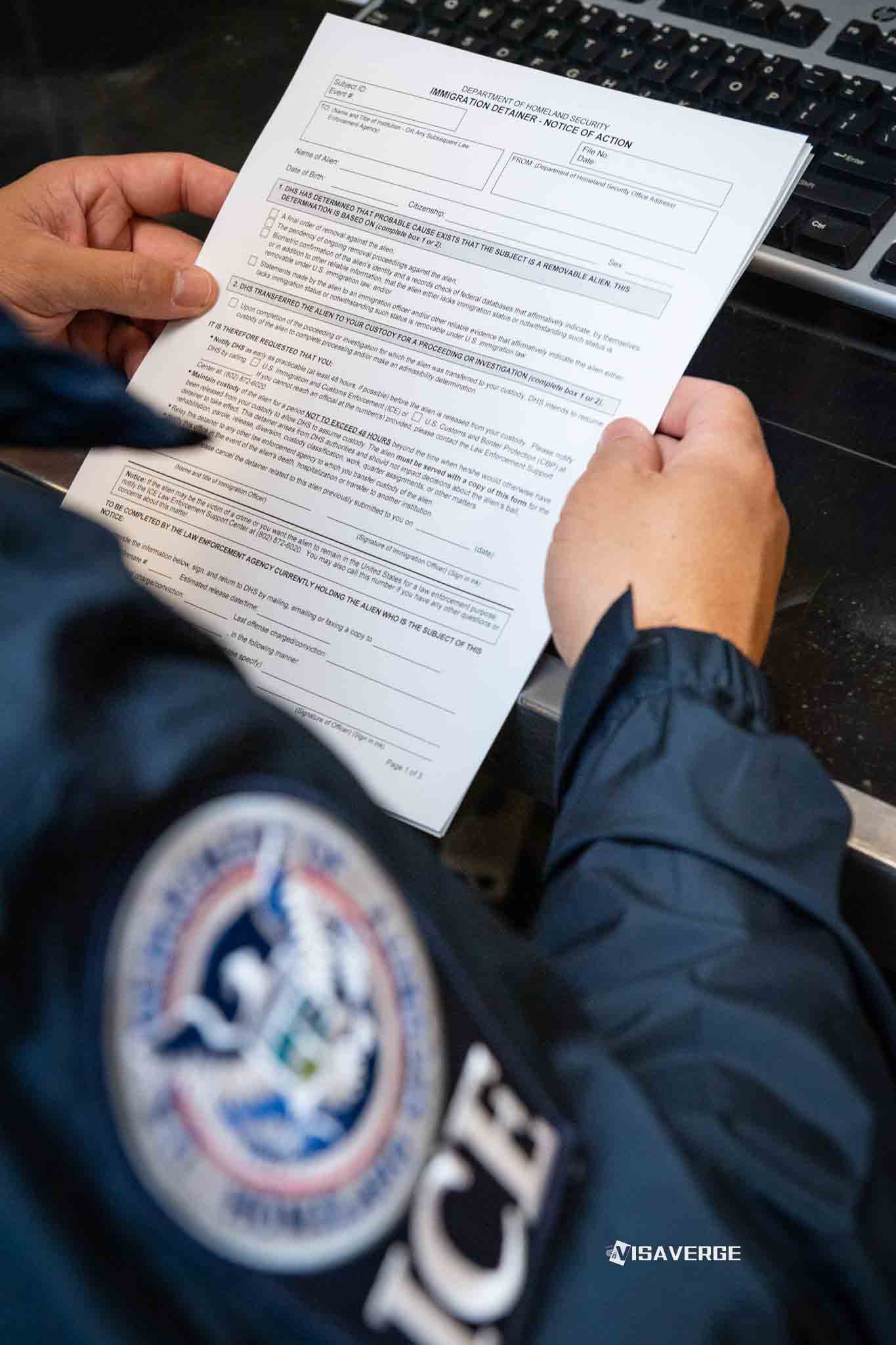(CALIFORNIA) A federal judge in the Northern District of California is pressing the Biden administration to explain the legal basis for a recent wave of international student visa revocations and related SEVIS record terminations, sharply questioning whether the government is respecting constitutional due process protections.
Court hearing and focus

In a Zoom hearing in May 2025, U.S. District Judge Jeffrey S. White ordered both the government and the plaintiffs to answer detailed questions about how these revocations are decided and carried out. According to the court record, he focused on the standards and evidence the federal government has used to justify stripping students of their visas and terminating their records in the Student and Exchange Visitor Information System, known as SEVIS.
Judge White’s questions followed weeks of rising concern from students, colleges, and advocacy groups about visa actions that, they say, did not involve criminal conduct or clear violations of immigration rules. The cases before him include students who say they lost their visas over:
- Minor infractions
- Participation in campus protests
- Being listed as a witness in a criminal case rather than as a suspect or defendant
Due process concerns
During the hearing, Judge White focused closely on whether the government’s criteria for international student visa revocations meet the U.S. Constitution’s due process requirements. The Fifth Amendment prohibits the federal government from depriving “any person of life, liberty, or property, without due process of law,” and the students argue that this protection applies when the government cancels a visa that allows them to live and study in the United States.
The judge questioned how that standard can be met when some students were not given:
- Advance notice
- Any real chance to respond
- A clear explanation for why their visa was taken away and their SEVIS record was terminated
The court heard allegations that many decisions were handled through automated systems without proper individual review, raising questions about fairness and accuracy.
“How can due process be satisfied if students are not told the reason, denied a meaningful opportunity to respond, or are subject to automated decision-making without human review?” — concerns reflected in the hearing
Who decides — agency roles and procedures
The lawsuits that triggered Judge White’s scrutiny were filed by affected students and advocacy organizations that work with international students. They claim a pattern of SEVIS record terminations and visa cancellations has spread across campuses, often catching students and university officials by surprise.
At the center of the judge’s inquiry is the role of different federal agencies. The court asked for detailed explanations of how:
- The Department of State (which issues visas at U.S. consulates abroad) interacts with
- U.S. Immigration and Customs Enforcement (ICE) (which oversees SEVIS and enforcement inside the country)
Judge White pressed the government to specify:
- Who makes the final decision to revoke a visa
- Who decides to terminate a SEVIS record
- What specific legal grounds they rely on for each action
He also asked whether the government can provide case-by-case evidence of visa ineligibility or noncompliance with immigration laws in each contested revocation. Plaintiffs say many students never received documents setting out such evidence, and only learned about the action when they:
- Were blocked from reentering the country
- Were told by their schools that their SEVIS records had been closed
- Were contacted by immigration officers
Transparency, standards, and alleged vagueness
The hearing highlighted what critics describe as a lack of transparency in the current process. Students and their lawyers say they rarely see a written standard that explains when:
- A minor conduct issue,
- A peaceful protest, or
- Serving as a witness in someone else’s case
becomes grounds for losing a visa. Judge White echoed those concerns, asking the government to clarify how its criteria are written, who approves them, and how they are applied in practice.
One central claim is that “vague or non-criminal grounds” have been used to push through international student visa revocations without the procedural safeguards the Constitution requires. Advocacy groups warn this may lead to:
- Inconsistent or discriminatory decisions
- Targeting or silencing of students engaged in protests or political activity
- Particular chilling effects on students from certain countries
Consequences for students
While the exact number of affected students has not been disclosed in court, lawyers say the impact of SEVIS record terminations is often immediate and harsh. Termination can:
- Cut off a student’s legal status
- Block the ability to work on campus or in optional training programs
- In some cases, trigger bars on returning to the United States
Once a SEVIS record is closed, students often struggle to find a path back to lawful status.
Government position and judicial scrutiny
The government has argued in other contexts that it must maintain strong control over visa eligibility to protect national security and enforce immigration laws. In this case, however, Judge White is asking it to show how that control can be exercised while still honoring due process rights. The court’s questions suggest that broad appeals to security will not be enough without specific proof that the law has been followed for each student.
Legal observers note the outcome could shape government practice beyond the Northern District of California. If the court requires clearer standards and more robust procedures before international student visa revocations and SEVIS record terminations can occur, federal agencies may need to adjust:
- How they use automated systems
- How they communicate with students and schools
Analysis by VisaVerge.com suggests greater judicial scrutiny of visa decisions can sometimes push agencies to publish more detailed guidance and provide better notice to those affected.
What the court has asked for
For international students and university officials watching the case, the court’s inquiry offers a window into behind-the-scenes decision-making. The court has asked for:
- Legal citations and concrete explanations of procedures
- Descriptions of what happens when a potential issue is flagged
- The path a case takes through the system
- When a human officer reviews or overrides an automated result
That level of detail is not often discussed publicly.
The State Department continues to outline the basic rules for student visas on its official student visa page, and forms such as the online Form DS-160 nonimmigrant visa application and school-issued documents like the Form I-20 remain central to the process. But the case before Judge White is not about how to apply; it is about what happens after a visa has already been granted and a student is already building a life in the United States, only to see that status undone.
Current status and potential implications
Judge White has not yet ruled on the merits of the plaintiffs’ claims. The court has ordered additional briefing based on the questions raised during the May 2025 hearing.
For now, his sharp focus on the government’s criteria and methods has sent a clear signal: even in the complex world of immigration control, international student visa revocations, SEVIS record terminations, and related enforcement actions must still pass the test of constitutional due process.
In May 2025, Judge Jeffrey S. White pressed federal agencies to explain legal bases for international student visa revocations and SEVIS record terminations. Plaintiffs allege many decisions lacked advance notice, meaningful response opportunities, or clear explanations and may have relied on automated processing. The court demanded details on who makes decisions, what legal grounds are cited, and how evidence is documented. The inquiry could prompt clearer standards, better communication with students and schools, and limits on automated decision-making.













